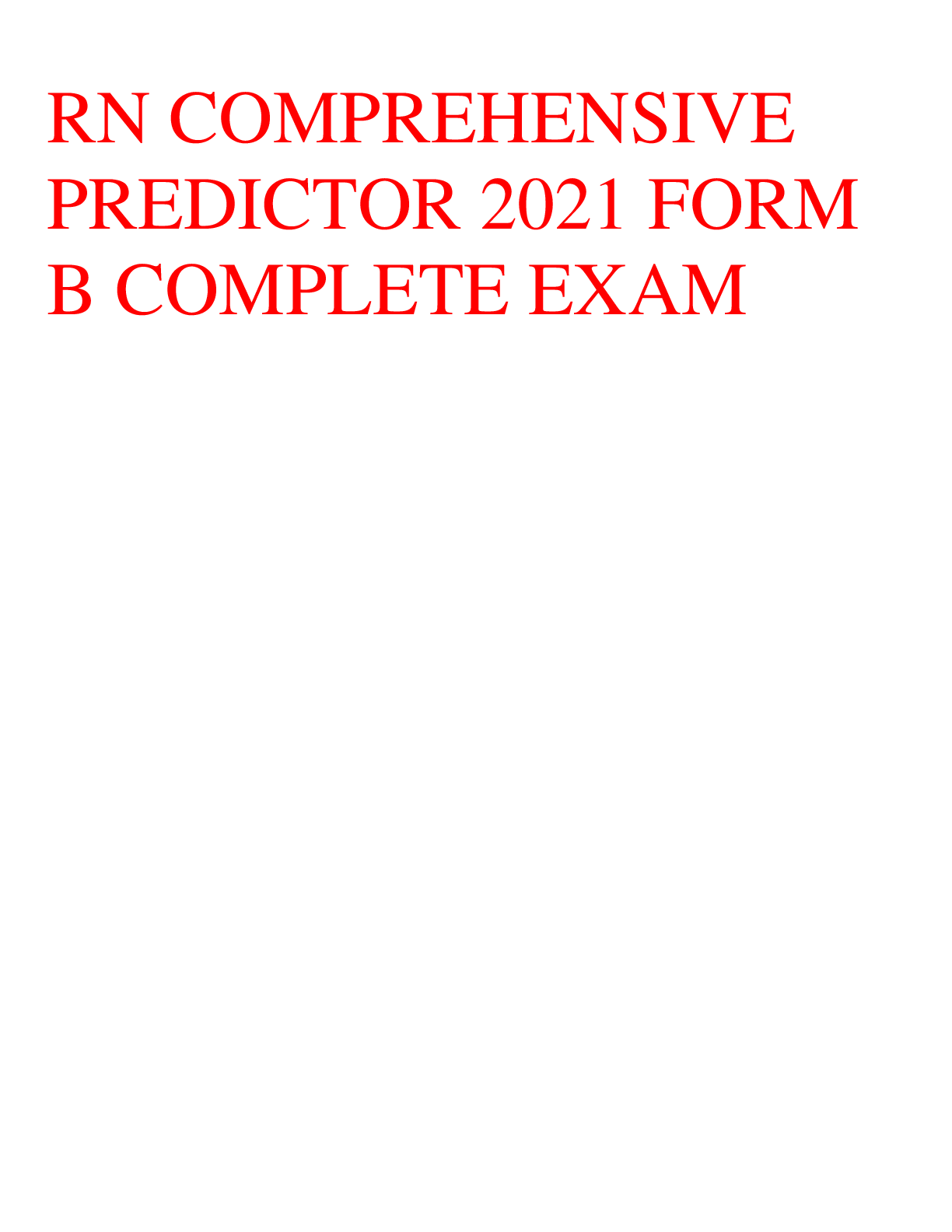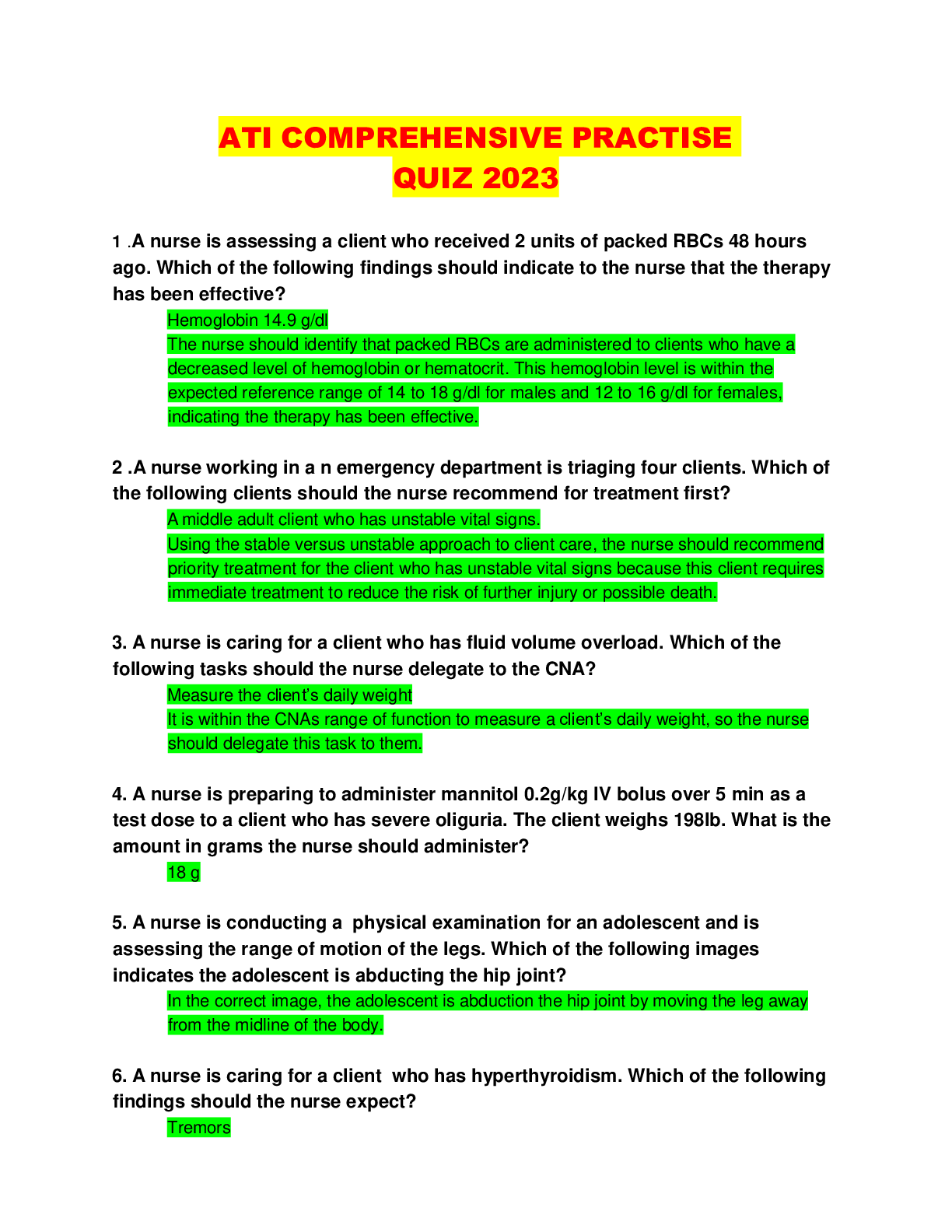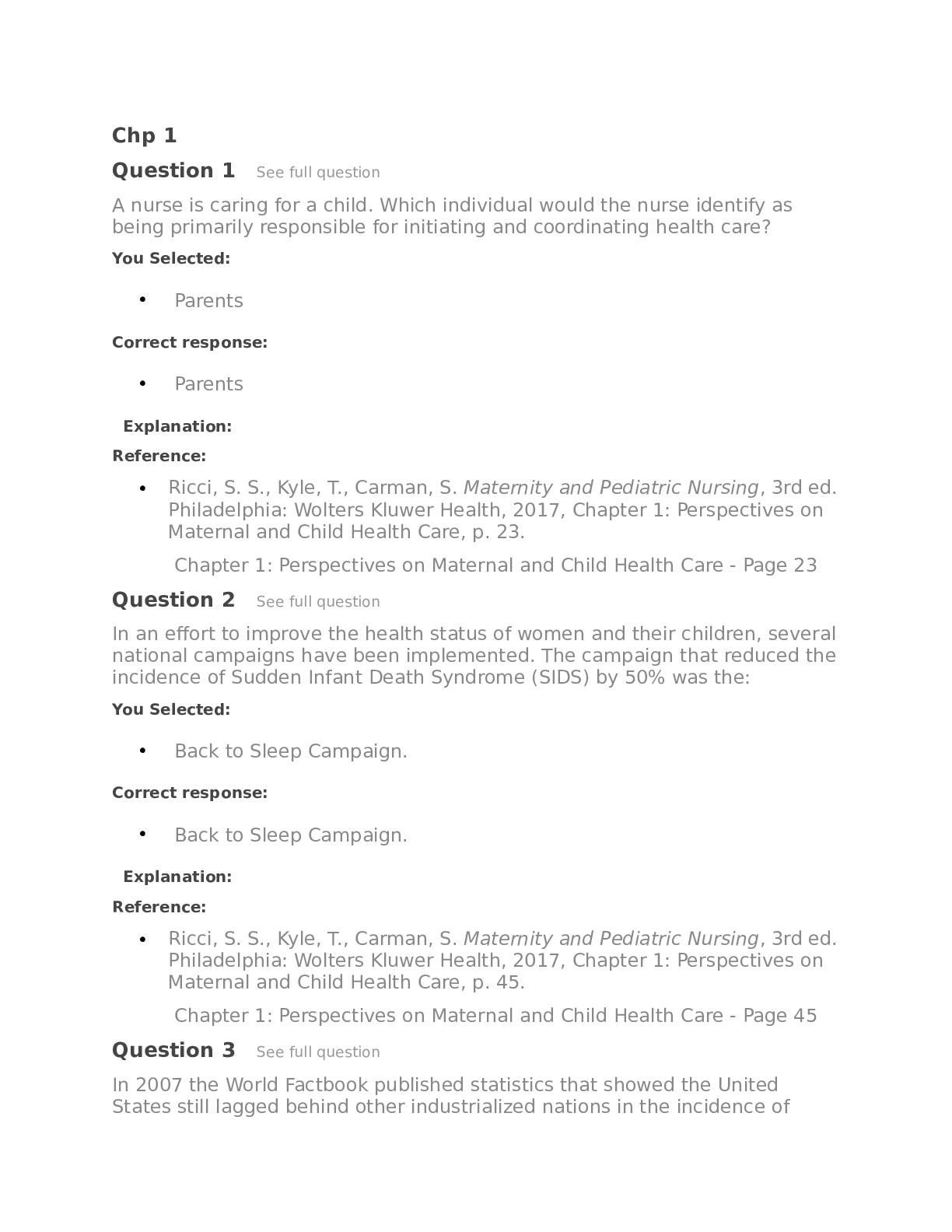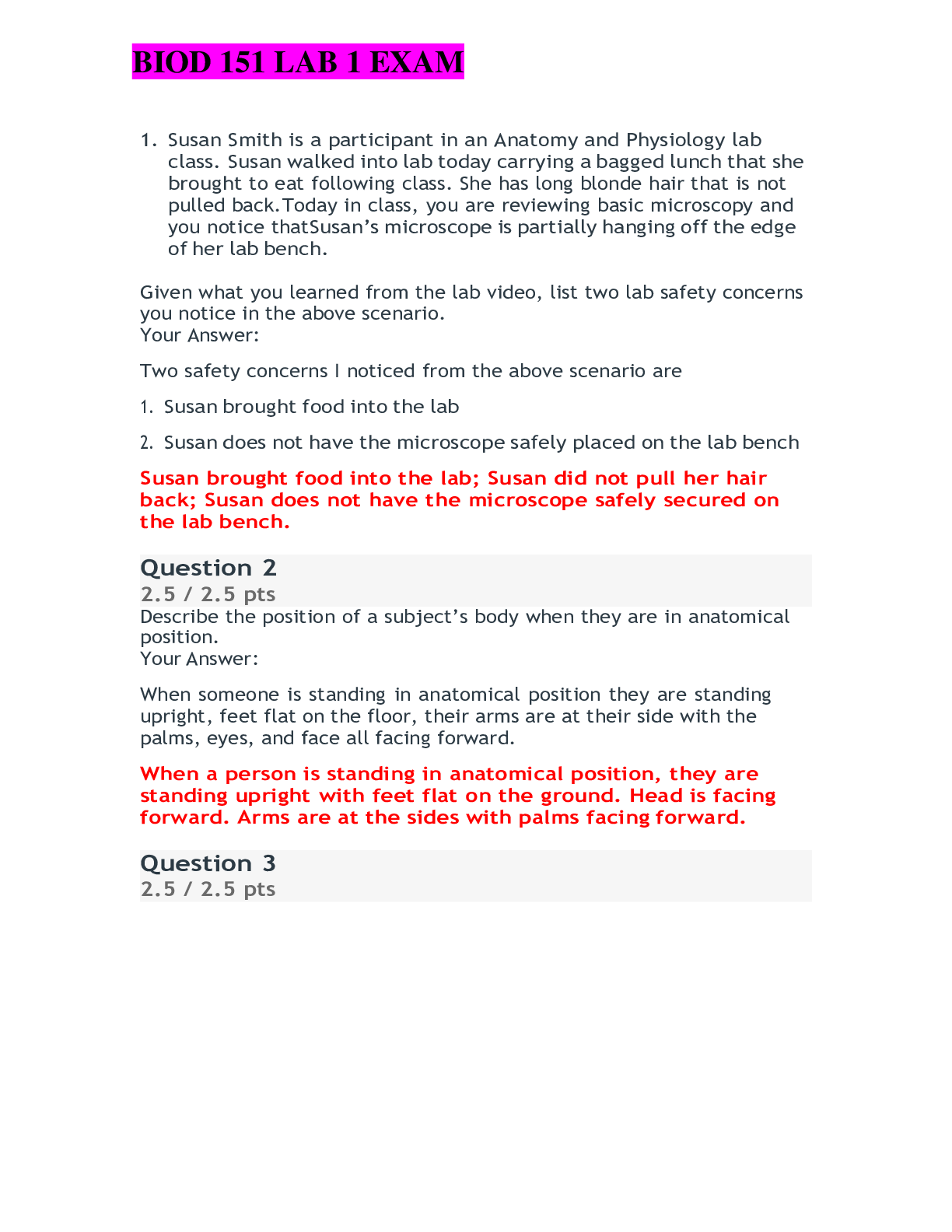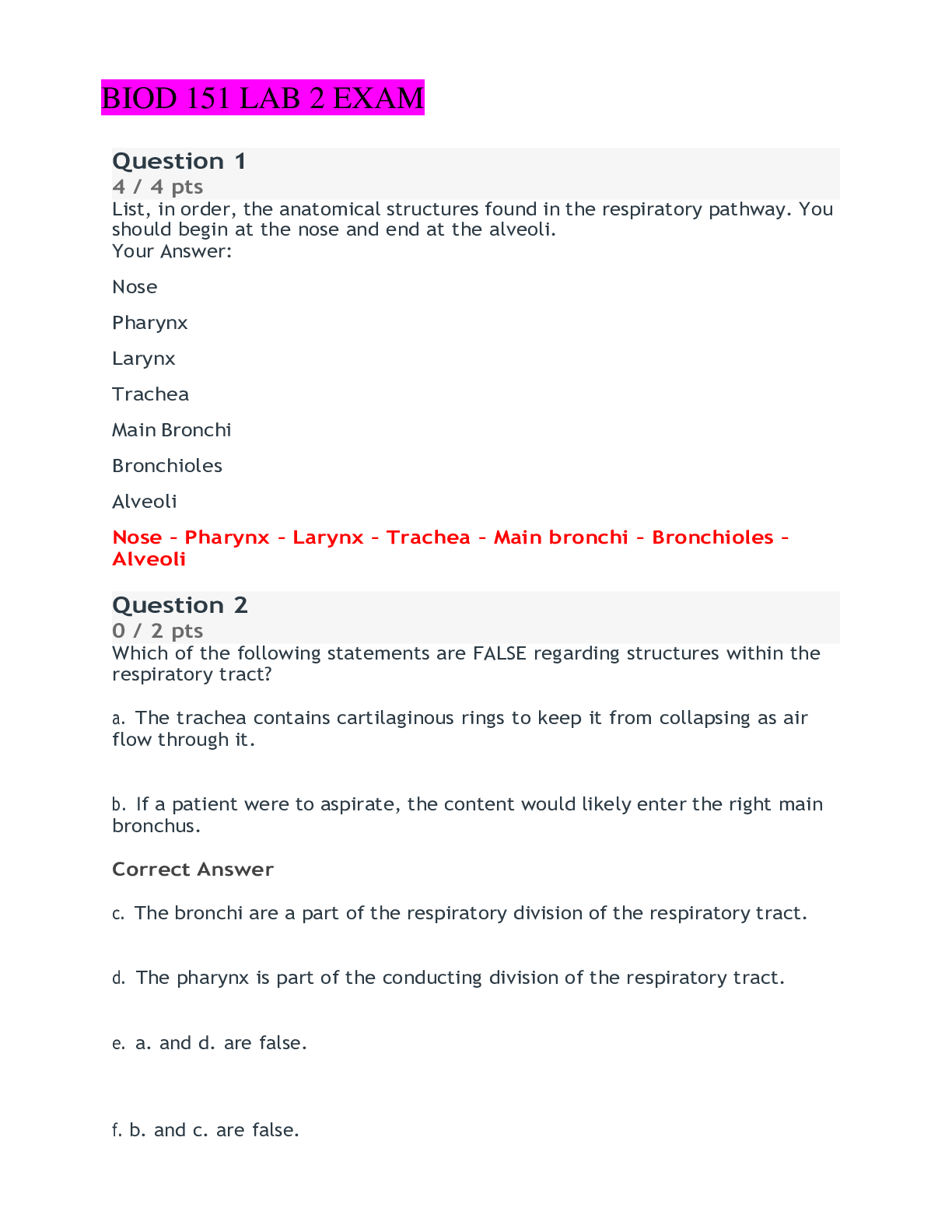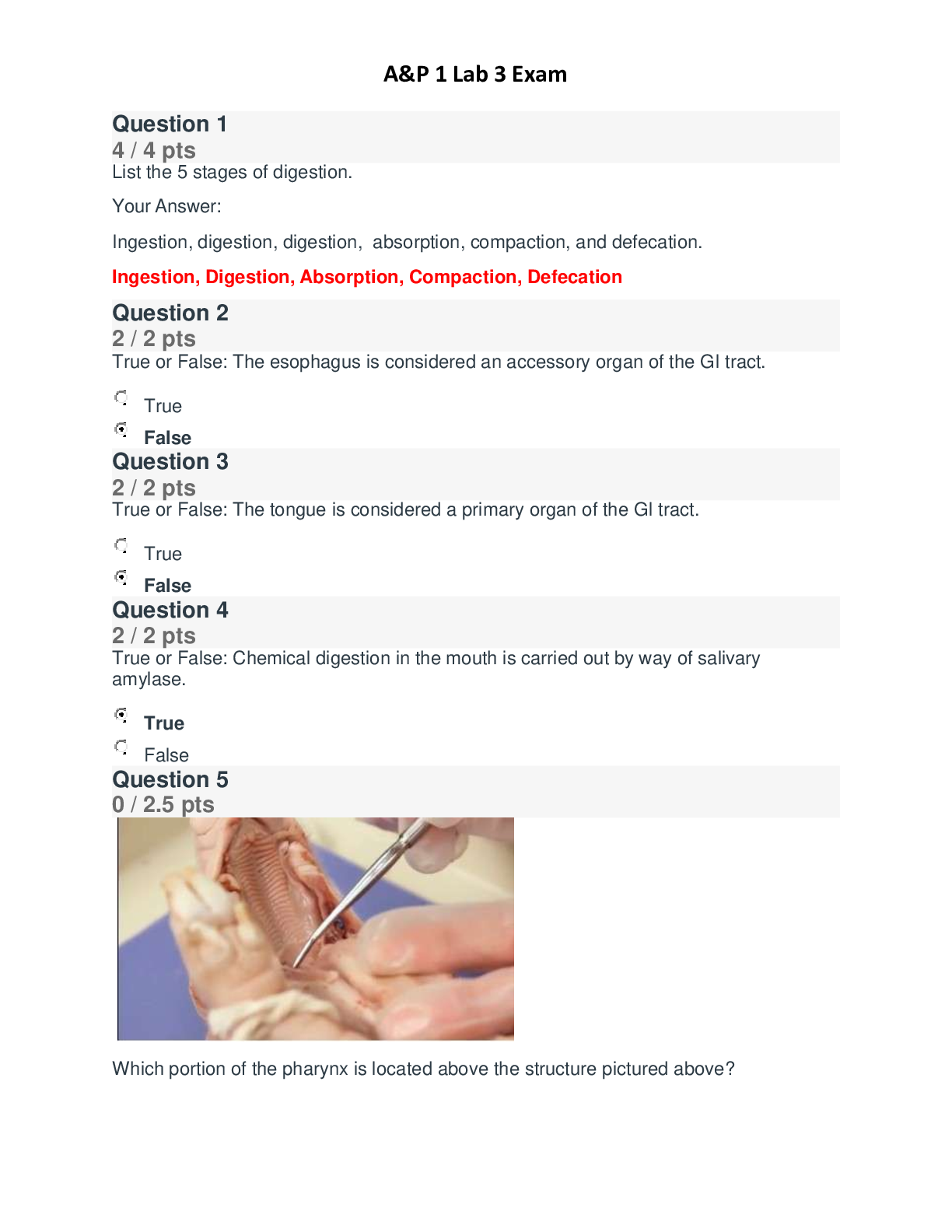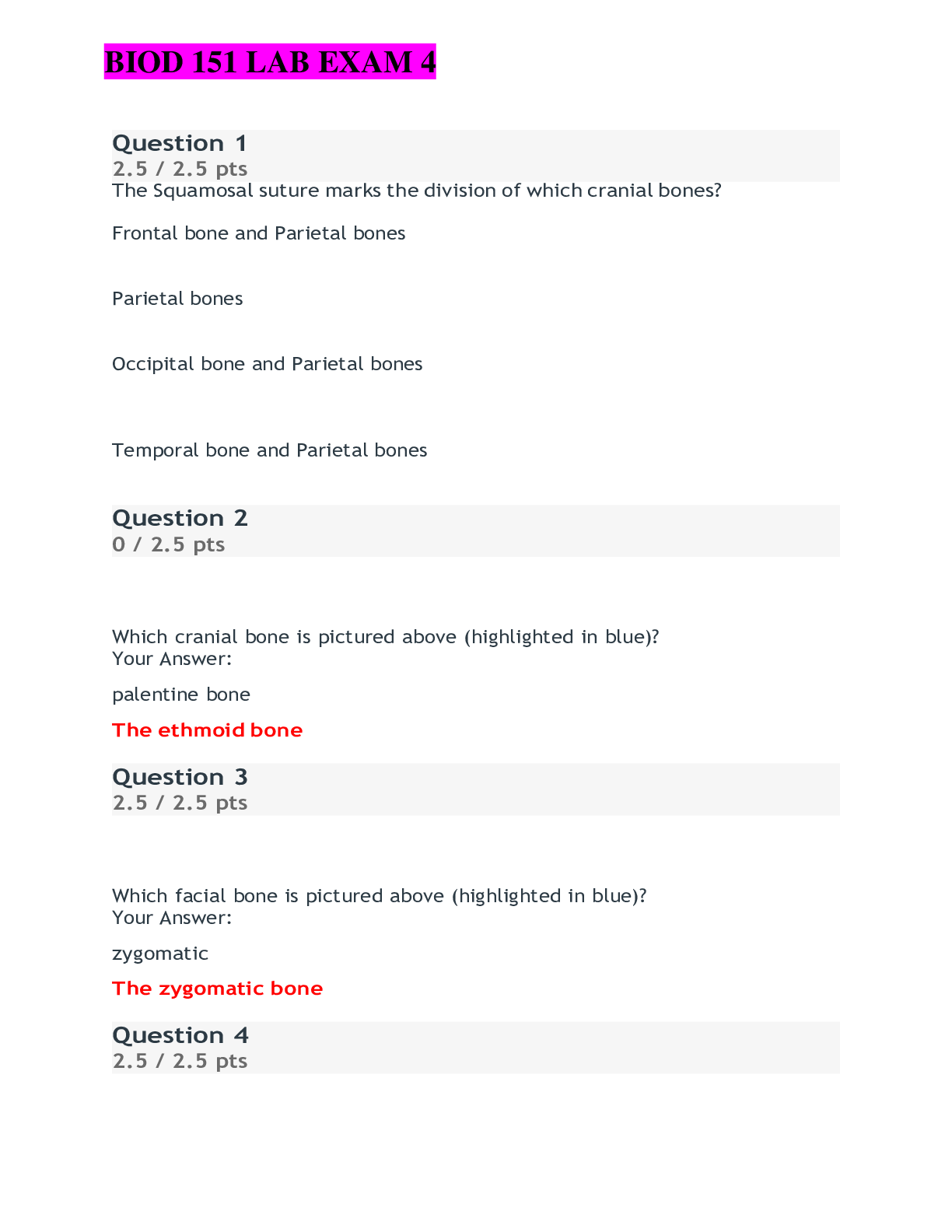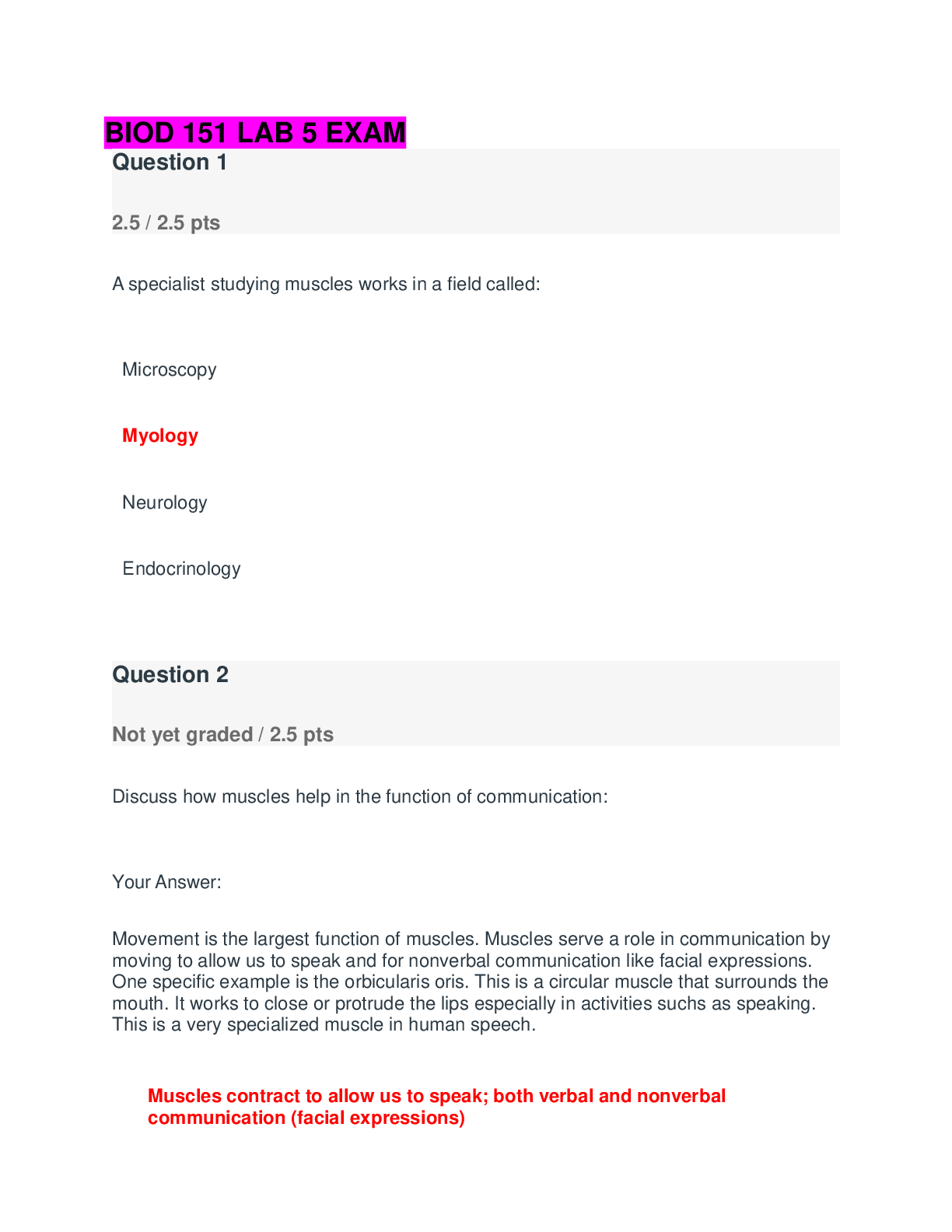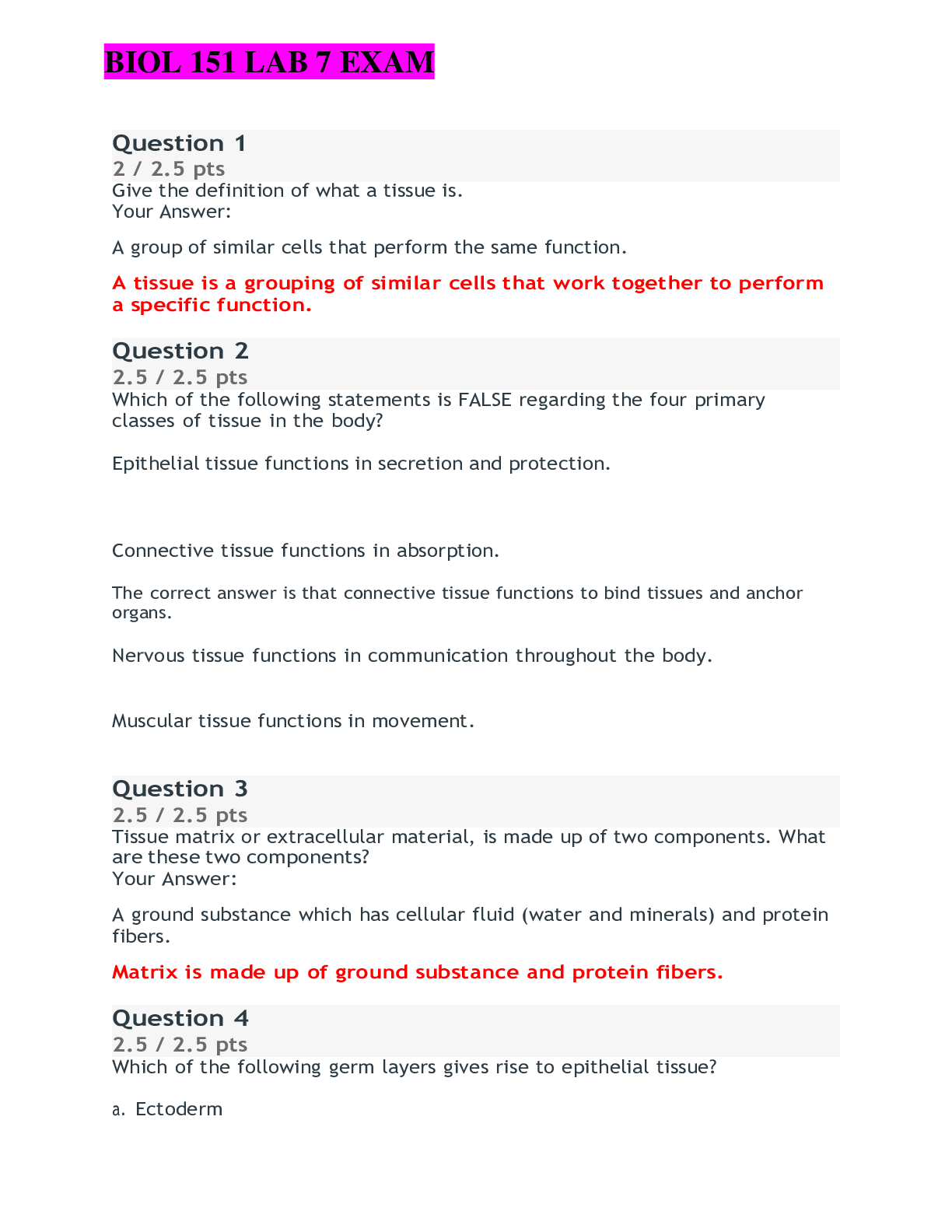Political Science > QUESTIONS & ANSWERS > American Politics & The U.S. Constitution Questions and Answers Rated A+ (All)
American Politics & The U.S. Constitution Questions and Answers Rated A+
Document Content and Description Below
American Politics & The U.S. Constitution Government: Describes the means by which a society organizes itself and allocates authority in order to accomplish collective goals and provide benefits tha... t the society as a whole need. Politics: Refers to the process of gaining and exercising control within a government for the purpose of setting and achieving particular goals, especially those related to the division of resources within a nation. Democracy: A political system in which people govern themselves. Private Goods: Goods provided by private businesses that can only be used by those who pay for them. Public Goods: Goods provided by the government that anyone can use and that are available to all without charge, such as national security and education. Toll Good: Private schooling is a type of toll good. Toll goods are available to many people, and many people can make use of them, but only if they can pay the price. Common Goods: Goods that all people may us but are of limited supply. Different Types of Government: Representative Democracy: Where voters elect representatives to make decisions and pass laws on behalf of all the people instead of allowing people to vote directly on laws. Political Power: Influence over a government’s institutions, leadership, or policies. Majority Rule: A fundamental principle of democracy; the majority should have the power to make decisions binding upon the whole. Minority Rights: Protections for those who are not part of the majority. Direct democracy: Where people participate directly in making government decisions instead of choosing representatives to do this for them. Monarchy: Where one ruler, usually a hereditary one, holds political power. Totalitarian: Where government is all-powerful, and citizens have no rights. Unit 2: The Development of Constitutional Democracy Module 1: The Influence of the Enlightenment Of all the Enlightenment thinkers, John Locke (1689) is the most influential. The most significant contributions of Locke, a seventeenth-century English philosopher, are his ideas regarding the relationship between government and natural rights*, which are said to be the God-given rights to life, liberty, and property. *Natural Rights: the right to life, liberty, and property; believed to be given by God; no government may take away. Locke identified two key aspects to our existence. The first is liberty which is a product of our independence. The second is property, which we use to maintain that independence. “Natural” refers to the fact that these are inherent to our existence and, therefore, a part of us. “Rights” means that we are free to exercise them without needing the permission of others. John Locke’s ideas of what characteristics the creation of civil society should entail: 1. It will have to respect our liberty. While our liberty may no longer be absolute (we’ll need to make sacrifices to join with others), we’ll get to retain as much liberty as possible. 2. Our interest in property also needs to be respected. Consistent with maximum liberty, we should also have maximum rights to property. 3. Society, then, will have limited authority over us, no more than is necessary to regulate our coexistence. Furthermore, government, which is created by society to make and enforce the rules necessary to uphold our agreement to work together, is likewise limited in the authority it can exercise over us. *Note: both society and government require the consent of the people. Without this consent, both would be illegitimate. And as our consent is required for their creation, it stands to reason that we hold the power for their destruction. Locke also cautioned that if we want to be free to pursue our own interests, we must be willing to let others pursue their own interests. Montesquieu (1748) (a French judge, letter writer, and philosopher) argues for a separation of powers: legislative, executive, and judicial. Each will serve as a check on the power of the other, limited the harm each might do. Montesquieu also advocates for due process (the requirement that government, when dealing with people, have in place a fair procedure which it applies equally to all). Adam Smith (1776) gives definition to our economic lives. Playing off the ideas of property introduced by Locke, Smith went a step further and argued not only for a strong expression of property rights but also for minimal government regulation of the economic marketplace. Allowing us individually to pursue our own economic interests without interference, Smith contends, will maximize the wealth that can be created through economic activity. Lesson 1: Social Contract Theory Social Contract: an agreement between people and government in which citizens consent to be governed so long as the government protects their natural rights. Thomas Hobbes (pre-Enlightenment English philosopher) was one the first individuals to contribute to the idea of the social contract. Hobbes argues that society is not something natural and immutable but rather it is something created by us. The social contract is when people make an agreement between themselves and the government. According to the social contract theory, the origin of society is the product of human desire and effort. Contractarianism: Suggests that people are primarily self-interested, and that a rational assessment of the best strategy for attaining the maximization of their self-interest will lead them to act morally and to consent to governmental authority. Defection: When you break the contract, you’re in – whether you agreed to be in it or not–and you decide to look after your own interests, instead of cooperating. The state of nature is a theory on how people might have lived before societies came into existence. John Locke believed the state of nature was peaceful and consisted of rational human beings. However, he also argued that life in the state of nature was “inconvenient.” Life in the state of nature… Hobbes: The world is a nasty place where people live insecure, “a war of all against all”. Rousseau: The world starts as good, but as population increases so do the inequalities, making it unstable. Locke: The world is a relatively decent place where people are rational and mindful of the law. What should the social contract protect? Hobbes: The most important thing is physical security. The social contract should protect the right to life. Rousseau: The most important thing is the general will. You can be “forced to be free”. The social contract should educate citizens. Locke: The most important thing is quality of life. The social contract should protect life, liberty, and property. Sovereignty: The full right and power of a governing body over itself. Lesson 2: Enlightened Ideas in the Founding Documents Americas founding documents: The Declaration of Independence, the Constitution, and the Bill of Rights. These embody key Enlightenment ideas about the nature of democratic government and the institutional processes of government. The Declaration of Independence: The Declaration of Independence, written by Thomas Jefferson (1743-1826), is very much an expression of the ideas John Locke illustrated in The Two Treatises of Government. In this work, Locke maintains that society is a rational but voluntary expression. Government, which serves to regulate the terms of the social contact on which society is created, serves to protect our natural rights and serve as a democratic conduit for our interests. Most importantly of our natural rights are liberty and property. The United States Constitution: The Constitution takes a turn into the less democratic ideas of Montesquieu and Rousseau. The framers of the Constitution – including James Madison, George Washington, and Alexander Hamilton – were concerned about the violence of the post-Revolutionary period. The Constitution embodies Montesquieu’s principles by separating the legislative, executive, and judicial power, placing each into the hands of different political actors. Separation of powers is a Constitutional principle, suggested by Montesquieu, that lessens the potential harm of the national government over the people. Checks and balances are a Constitutional mechanism, suggested by Montesquieu, balancing the national government and preventing any one section of government from having sole/complete power. The Bill of Rights: Overall, the Bill of Rights is a mix of Enlightenment ideas. The First Amendment gives us a definitive declaration for the protection of natural rights. First Amendment, Constitution of the United States, 1787: “Congress shall make no law respecting an establishment of religion, or prohibiting the free exercise thereof; or abridging the freedom of speech, or of the press; or the right of the people peaceable to assemble, and to petition the Government for a redress of grievances.” The Bill of Rights amounts to protections of individual conscience as well as protections for democratic participation. These are definitely Lockean ideas. The Amendments soon drift into the realm of Montesquieu. (Amendments 4-8) The Bill of Rights protects Locke’s idea of natural rights and provides Montesquieu’s protections known as due process of law. Module 2: The Articles of Confederation Lesson 3: A National Government Under the Articles of Confederation The first written constitution of the United States is known as the Articles of Confederation and Perpetual Union. Political Ideologies: are coherent philosophies about the structure, power, and purpose of government. How is the unicameral Congress different from a bicameral Congress? A unicameral Congress has one chamber while a bicameral Congress has two. What was the basis of representation in Congress under the Articles of Confederation? Each state had one vote in Congress. Government powers under the Articles of Confederation: (Everything else was left for each individual state to decide) The Power to Borrow and Coin Money The Power to Declare War The Power to Make Treaties and Alliances with Other Nations The Power to Regulate Trade with the Native Americans The Power to Settle Disputes among Other States The biggest issue with the government powers revolved around enforcement. For example, only states had the power to implement laws. Only the states could implement taxes, thus forcing the national government to ask them for money to cover any debts. In addition, even though the national government had the power to declare war, there was no national army. They were dependent upon the states to supple enough soldiers to mount an effective attack. Under the Articles of Confederation, there was no president or chief executive. Without this person in charge of enforcing the laws, the power of the states tremendously outweighed the power of the national government. Why were the powers of the national government severely limited under the Articles of Confederation? To prevent the national government from becoming too powerful or abusing the rights of individual citizens and states. Why was limited the powers of the national government under the Articles of Confederation a major concern? It maintained the sovereignty of state governments. Which power did the national government have under the Articles of Confederation? To manage relationships with Indian tribes. Although the national government had the power to declare war under the Articles of Confederation, how was this specific power limited? There was no national military from which to draw soldiers. Why was the national government given power to regulate trade with the Native Americans under the Articles of Confederation? Because Native Americans were not considered citizens of the United States and were treated as foreign nations. The Articles of Confederation, in its attempt to protect the power of the states, ultimately created a national government that was too weak to function. This problem resulted in several others: o A unicameral congress in which states, regardless of the number of delegates and size of their population, only receive one vote. o No executive or judicial branches. o National government left with very limited power. Remember these key points from this lesson: o The primary goal of the Articles of Confederation was to limit the powers of the national government, thus providing for greater state sovereignty. o The structure of the national government under the Articles of Confederation did not mirror our current structure of government, demonstrating the need for multiple branches of government. o The Articles of Confederation limited the powers of the national government too much, ultimately making it too weak to function. Which system of government allows states to retain most of their power and authority while delegating few defined powers to the national government? A confederation Why did the Articles of Confederation fail? The Articles limited the powers of the national government too much, making it weak and ineffective. The Articles gave the states too much authority. How did creating a republican form of government in the United States ease the fears of the national government becoming too powerful? Republican government rested political power in the hands of the people. Why was it so difficult to change the Articles of Confederation? The Articles of Confederation required unanimous consent by all the states for any changes. Which of these are powers of the national governm [Show More]
Last updated: 1 year ago
Preview 1 out of 31 pages
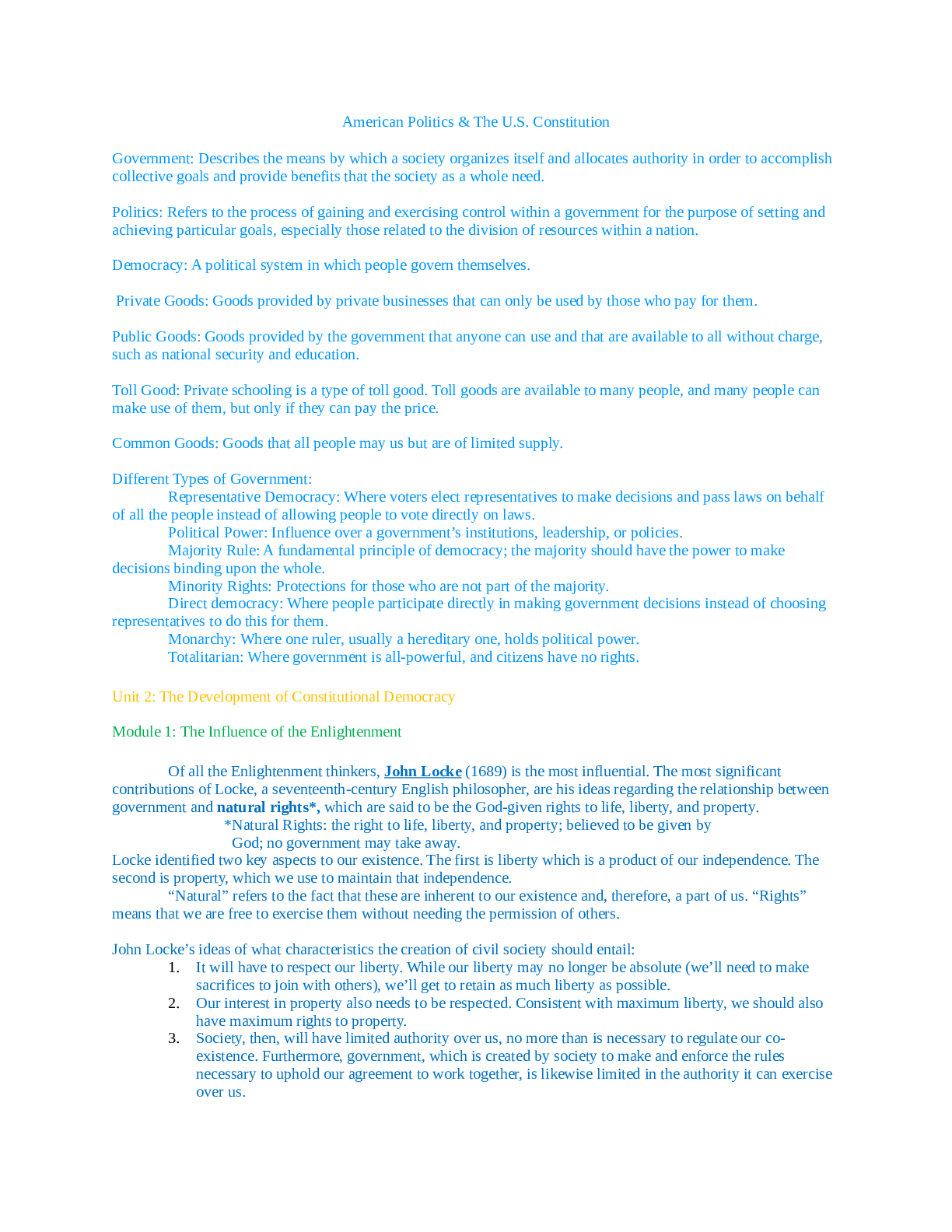
Buy this document to get the full access instantly
Instant Download Access after purchase
Add to cartInstant download
We Accept:

Reviews( 0 )
$12.00
Document information
Connected school, study & course
About the document
Uploaded On
Aug 21, 2022
Number of pages
31
Written in
Additional information
This document has been written for:
Uploaded
Aug 21, 2022
Downloads
0
Views
61

.png)
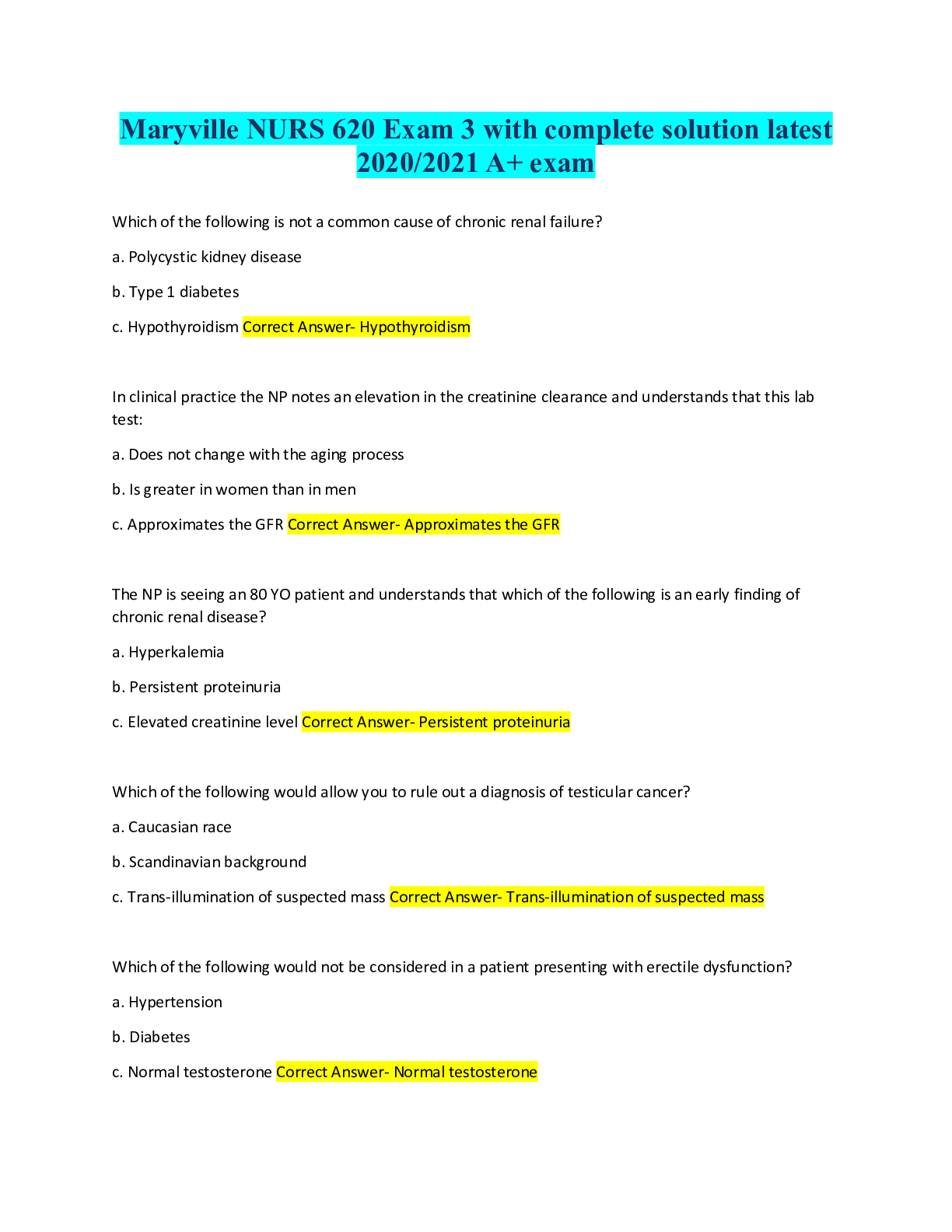
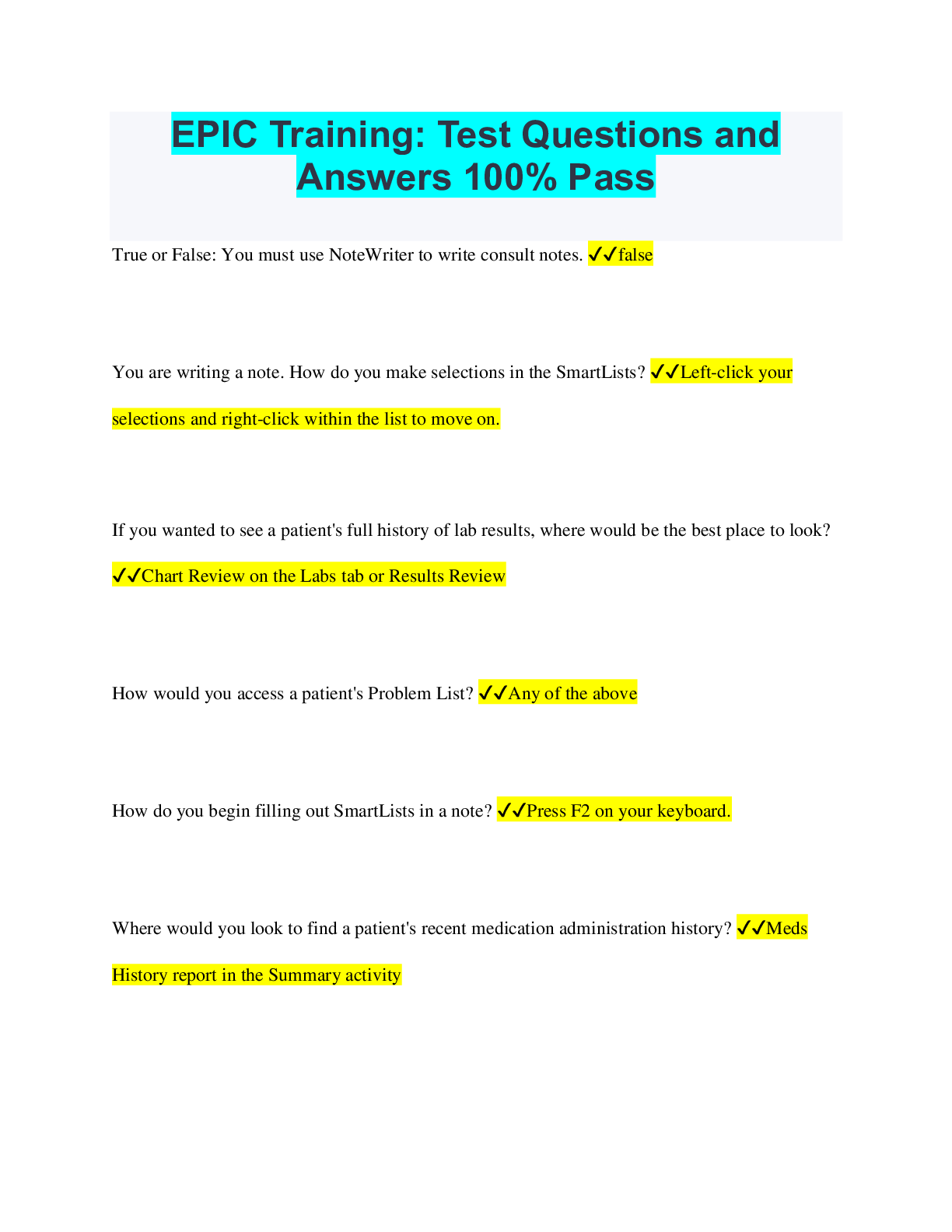
.png)
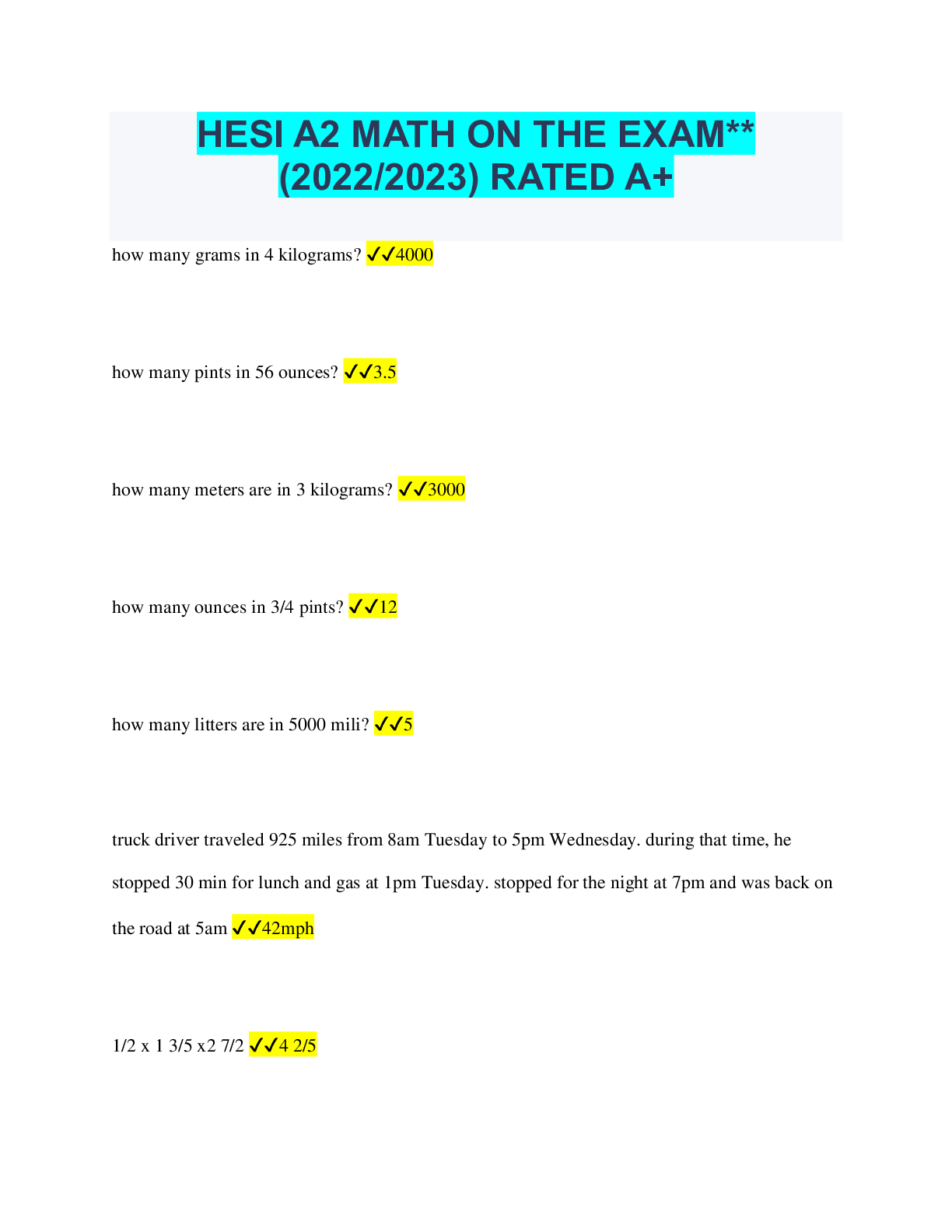
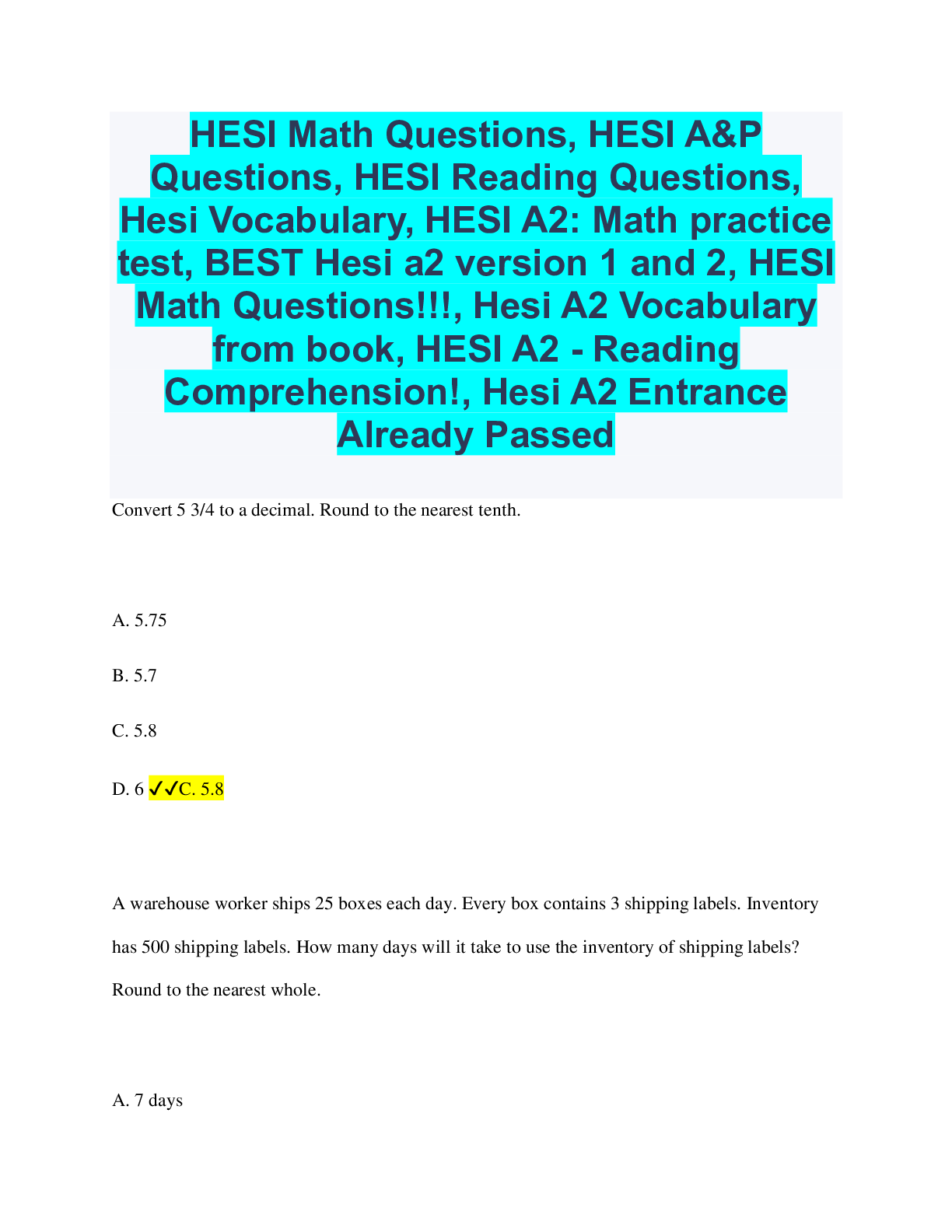
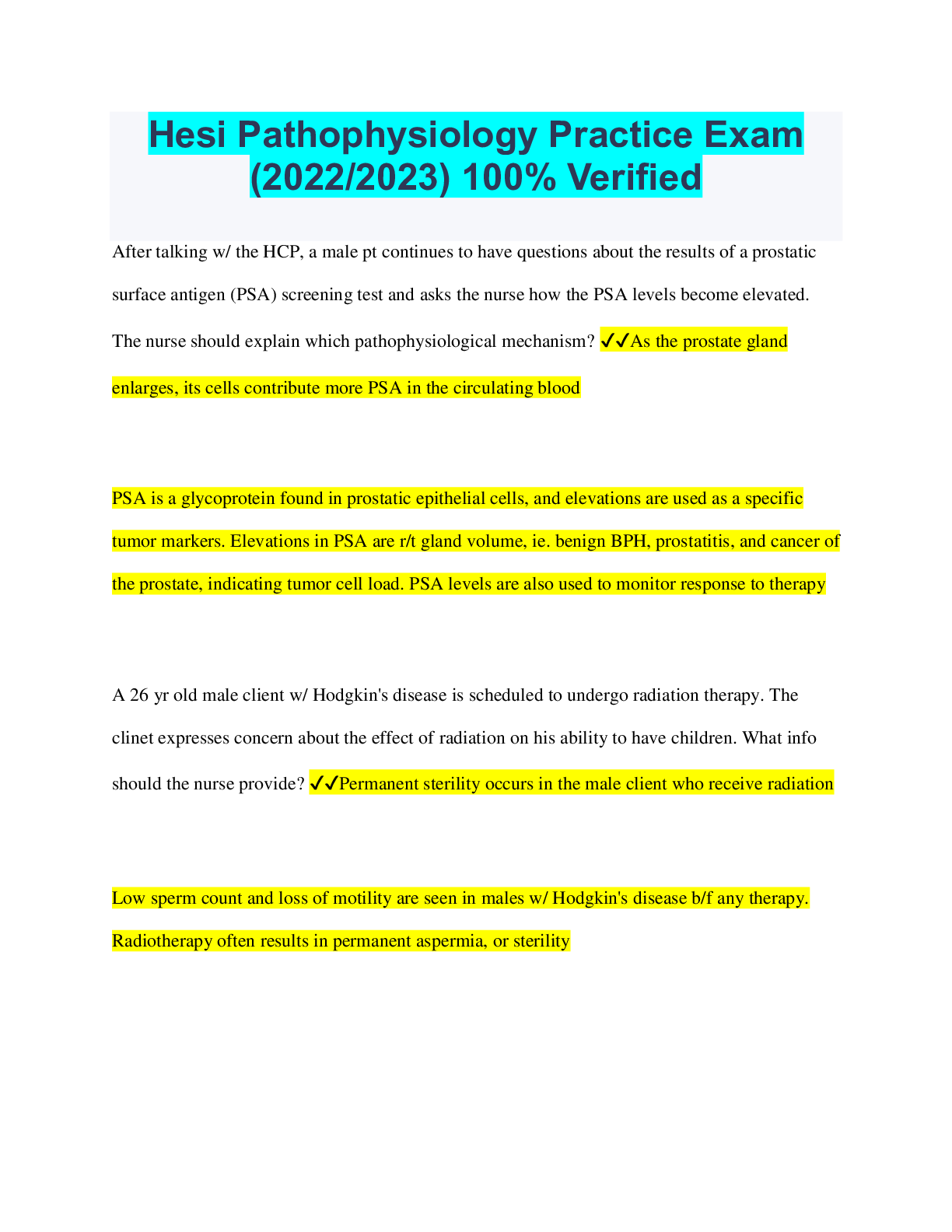
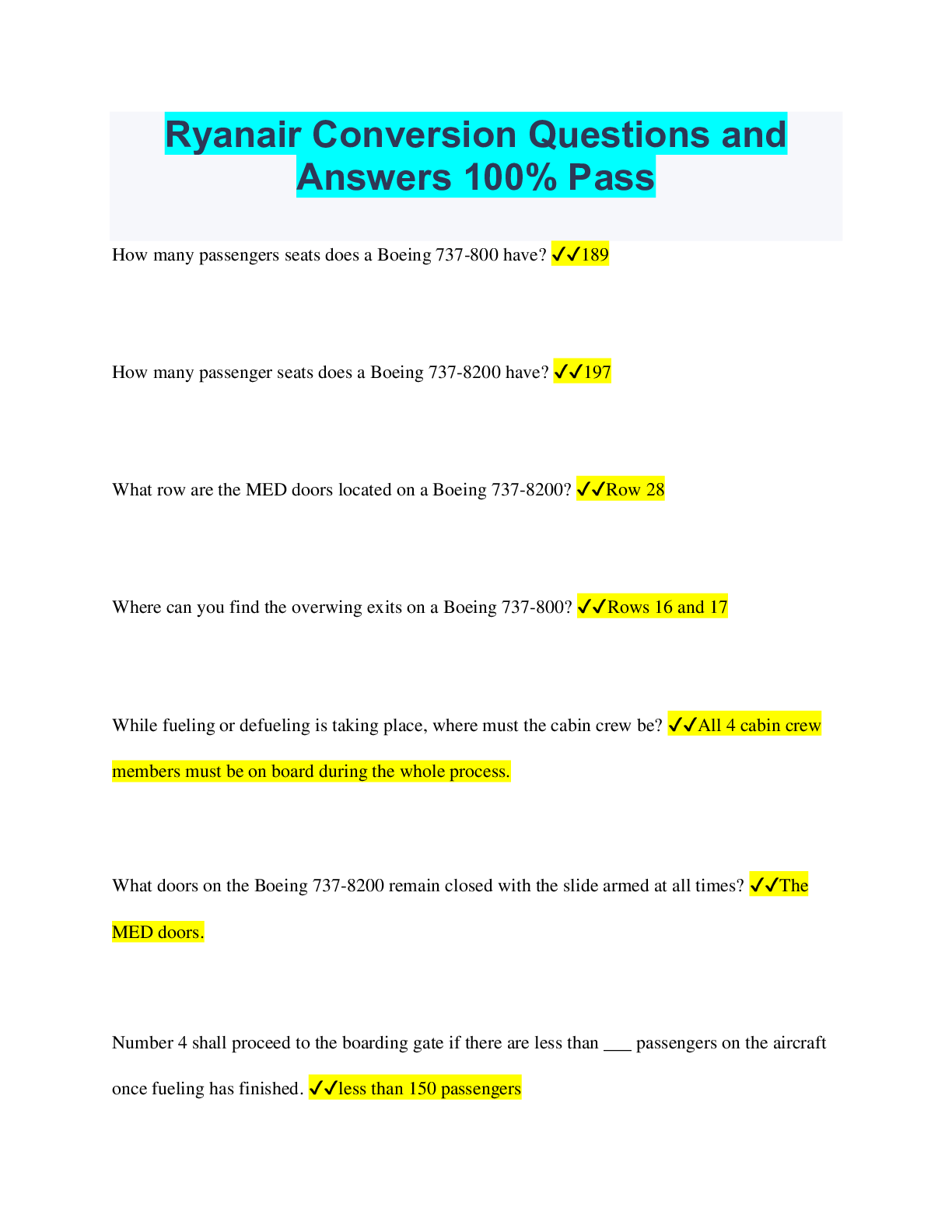
.png)
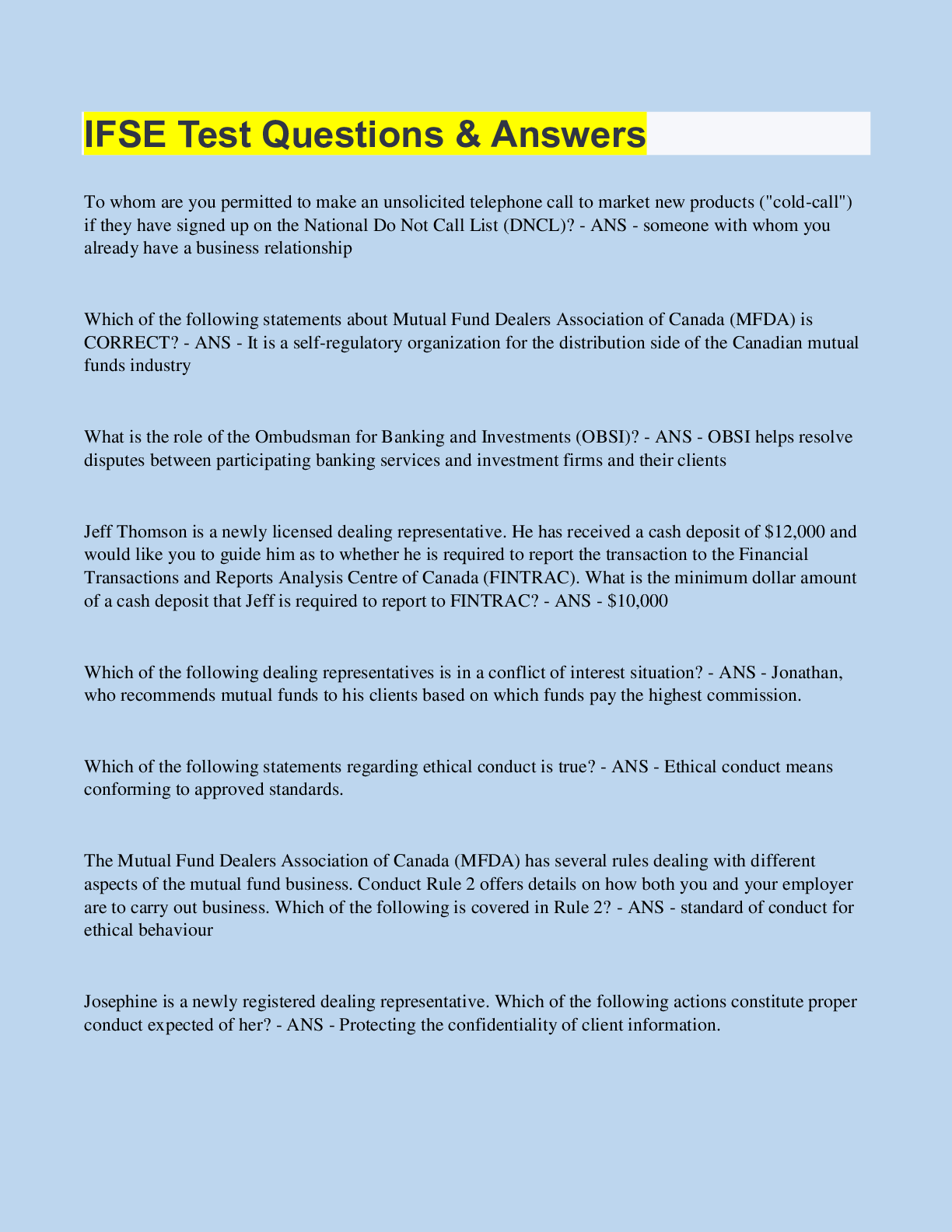
.png)
.png)
